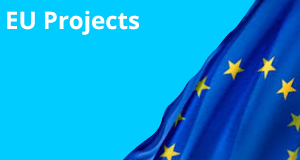Cordis News
Cordis.europa.eu
‘The hardest thing is to get a match between offers and demands in terms of research and innovation partnership, but when our Moroccan researchers integrate European projects, exchange and cooperation between the two shores of the Mediterranean often results in great projects’.
These words, were pronounced by Mrs Loudyi, former National Contact Point of Morocco for EU environmental projects, during the Innovation Week, held in Casablanca from 3-5 March 2015.
The three day event offered seminars, trainings and a brokerage dedicated session, and succeeded in gathering, each day, more than 50 participants such as researchers, entrepreneurs and representatives from public administrations, from all over Morocco but also from abroad, including representatives from French, Tunisian, Lebanese and British organisations. All worked together towards a local and sustainable development in different fields such as energy, forestry, and health, and on how to remove barriers to reach innovation.
E.Doblas, CREAF researcher and coordinator of MENFRI, one of the EC funded Research to Innovation (R2I) projects, organising the ‘Innovation week’ explained how this idea was born. ‘Within our own project, we identified major problematics for the Mediterranean forestry sector: climate change impacts, barriers to entrepreneurship, gender issues, lack of public incentives, etc. And our partners from the EU and the Maghreb, working on projects related to energy, agriculture and water, also found very similar barriers.
So we decided to gather in order to collaborate and we create a platform where researchers, entrepreneurs and local communities, from all over the Mediterranean, gathered, discussed and exchanged knowledge and good practices on these identified problems. In the case of MENFRI, this kind of dialogue proved itself to be helpful to make the Mediterranean forestry an innovative, sustainable, fair, economically viable, and job creating sector. The organisation of an “Innovation week”, allowing an exchange of practical knowledge and tips on research and development, appeared to us as a crucial step towards a stronger and unified Mediterranean research and entrepreneurship in order to tackle common problems we are facing’.
Mrs. Siham Hamidi from the Moroccan Ministry of Higher Education, Scientific Research and Professional Training agreed with this need of a strong Mediterranean research: ‘It is necessary that we develop our researchers’ capacity to draft their own projects proposals in response to European Commission’s calls for proposals,’ she explained. ‘We have much to contribute to the Mediterranean research. That is why our Ministry undertakes a mission of information among Moroccan researchers to inform them of existing opportunities such as Horizon 2020,’ she added.
‘Strengthening EU cooperation in science, research and innovation in the Mediterranean is a way to create growth while tackling global challenges such as climate change together and act with a critical mass’, said T.Matraia, Policy officer for ‘Southern European Neighbourhood and Africa’ at the EU Commission DG Research and Innovation. ‘But it goes beyond that’, he continued. ‘It is about investing in human capital, by sharing ownership and reinforcing mutual trust while building stronger relations around the Mediterranean basin for current and new generations.
In this way, international cooperation in research and innovation supports also the EU external policy and promotes local and sustainable development while creating win-win opportunities. R2I projects such as MENFRI are effective tools to unite researchers, entrepreneurs and civil society and make them working for common objectives’.
‘MENFRI is organising a new capacity building activities in Morocco for November 2015 and in Tunisia in May 2016,’ says Doblas. ‘Forest certification and specific support to women living in rural areas, working in the forestry sector will be the core themes’ adds Doblas, ‘MENFRI is already collaborating with PEFC International (Programme for the Endorsement of Forest Certification) and is exploring further cooperation with the EU Delegation in Morocco. We believe this action will pave the way for jobs creation and also support local development.’








